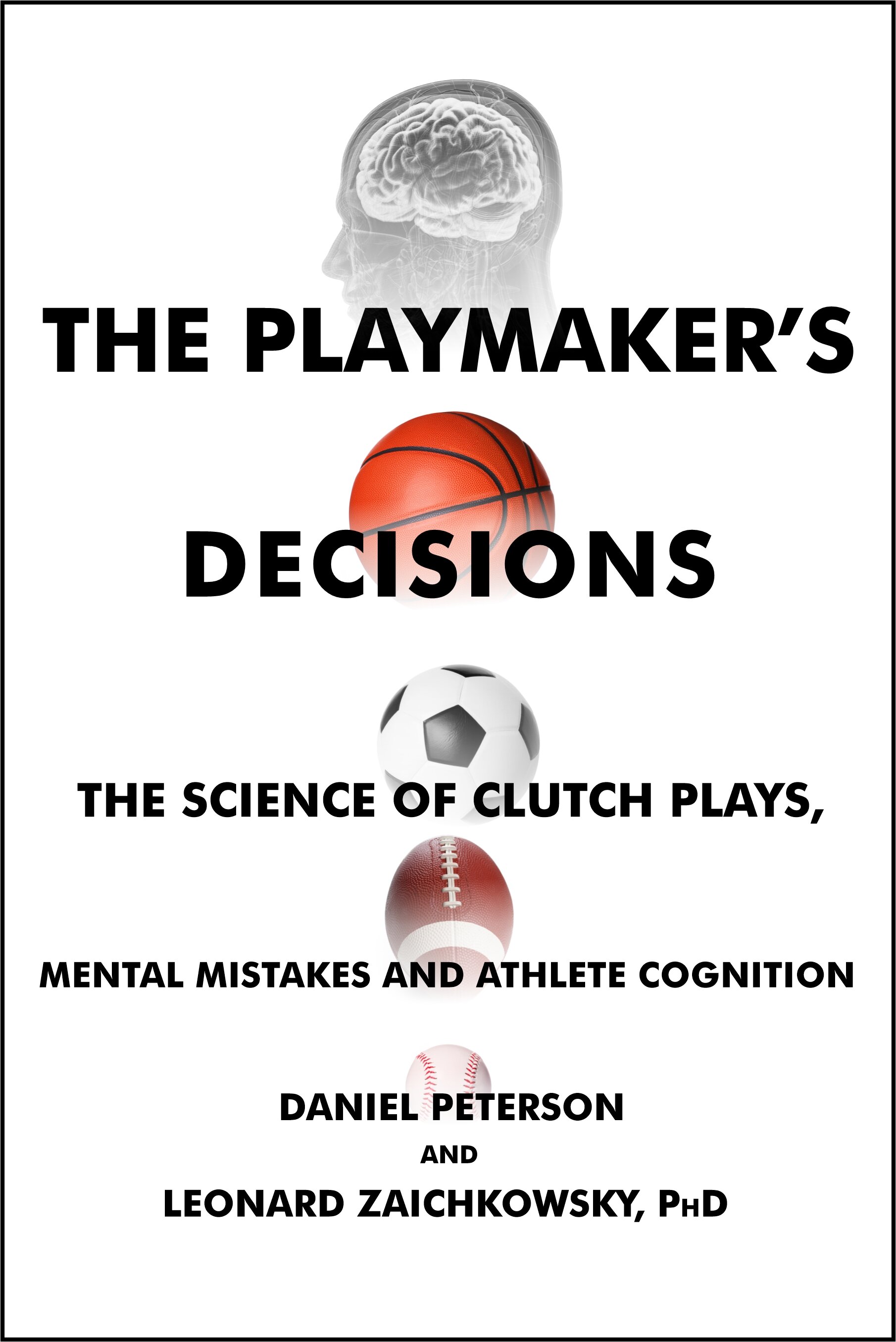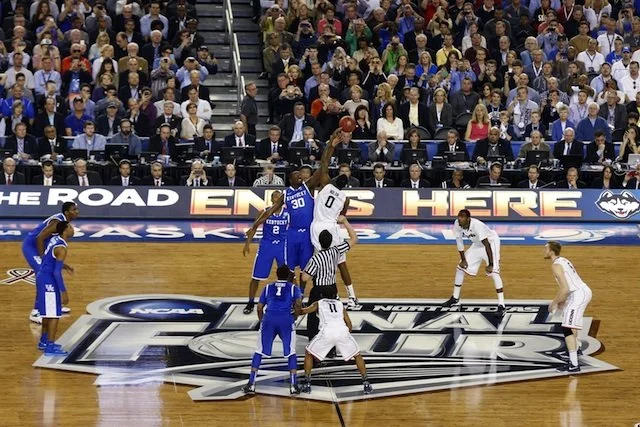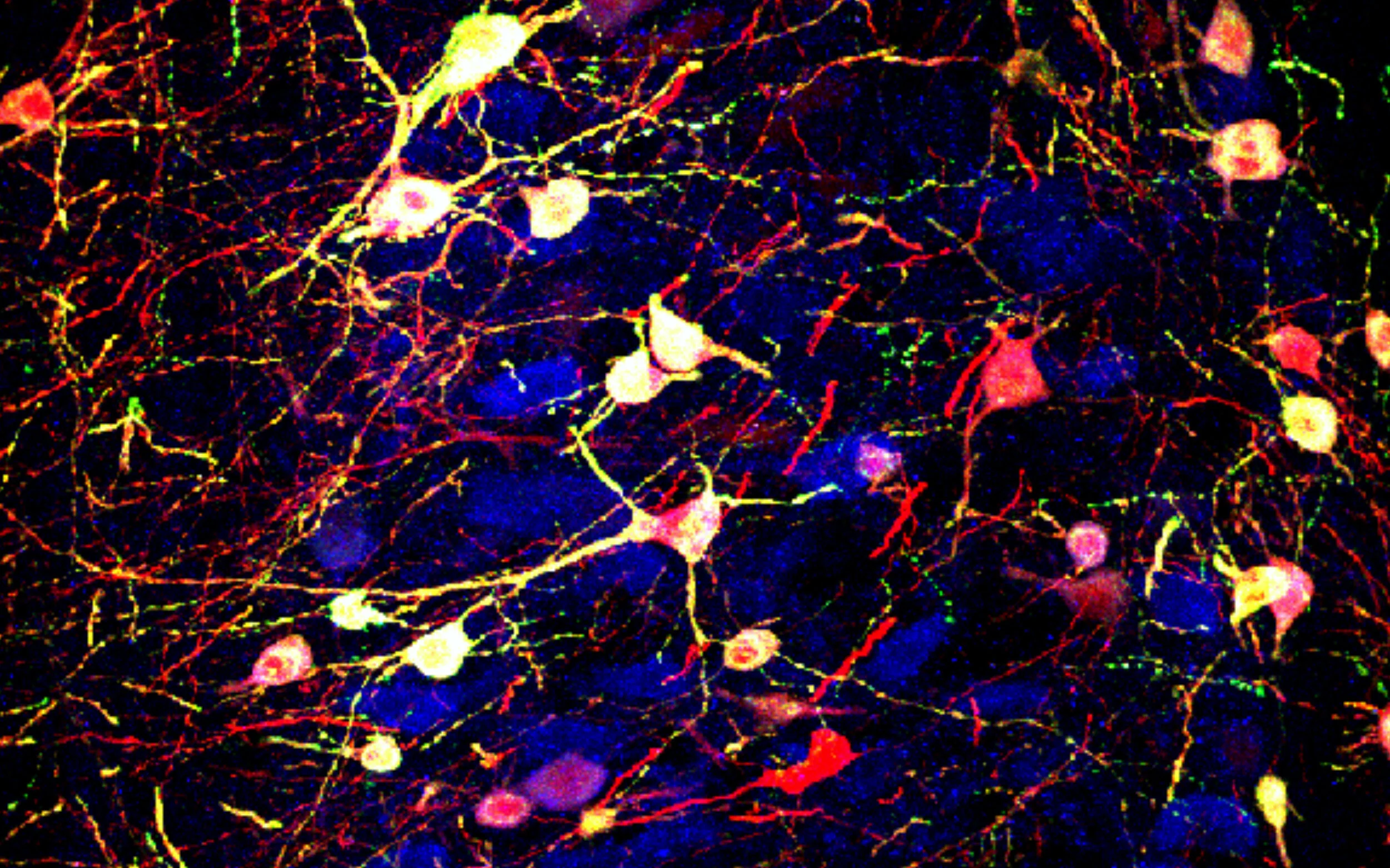Team Camaraderie Will Keep You In The Game Longer
/
It's never fun riding the bench -- but could it also make you less likely to be physically active in the future? That's one of the questions being explored by Mark Eys, an associate professor of kinesiology and physical education at Wilfrid Laurier University and the Canada Research Chair in Group Dynamics and Physical Activity. Eys is presenting his work as part of this week's Canada Research Chairs conference in Toronto.
Eys, who also teaches out of the university's psychology department, is studying group cohesion -- which, in sporting terms, is essentially that sense of camaraderie that often develops between teammates -- and how it affects the willingness of teenagers to take part in physical activity long-term. It's an important connection to study, he says, since it's much more common for people to work out in groups than on their own.
"People playing sports, for instance, are usually part of a group. If they're playing golf, they're in a group. They're often going for runs in a group," says Eys. "If we understand how those groups work, and take advantage of those situations, we can facilitate physical activity."
For the past two years, Eys and his team of graduate students have been observing teens aged 13-17 in the Sudbury area, tracking them as they take part in high school sports, rec leagues, and non-structured group activities like running and jogging.
Once a year, says Eys, they fill out questionnaires that measure how they feel about the level of cohesion in their groups. The teens taking part in highly-structured sports, particularly at the high school level, are asked specifically about their teams' focus -- how it strikes a balance between self-improvement and winning.
While they're still analyzing the first two years of data, Eys points out that, so far, they've found "a really strong relationship between that motivational climate and perceptions of cohesion."
That relationship seems to echo the findings of researchers who've posed the same questions to adults, says Eys.
"If you look at the research on adults, the link between group perceptions and cohesion is pretty clear," he says. "If people are in groups that they enjoy, they're more likely to stick to their exercise regimens."
For Eys, his research isn't purely academic -- it's also personal. A decade ago, Eys played basketball at the University of Waterloo, and in his fourth year made it to nationals. While the team didn't win, they managed to strike a near-perfect balance, he says, between competitiveness and camaraderie.
"We still, to this day -- and this is ten years after the fact -- get together as a group. It was obviously a very cohesive bunch. I don't think we were necessarily the most talented group in the league, but some of these group processes can overcome that."
Eys also has two daughters, aged six and four, who are "taking their first steps into organized activities." Researching what it is that makes a good group activity, he says, will translate into an increased likelihood that physically active kids become physically active adults.
The goal of his research is to "have something to be able to take to coaches, to be able to take to organizations" that would outline all those factors that go into a cohesive group environment. Making kids play better, may help them play longer.
Source: Canadian Federation for the Humanities and Social Sciences
See also: Soccer Goal Celebrations Are Contagious and Athletes In The Zone Feel The Flow
Eys, who also teaches out of the university's psychology department, is studying group cohesion -- which, in sporting terms, is essentially that sense of camaraderie that often develops between teammates -- and how it affects the willingness of teenagers to take part in physical activity long-term. It's an important connection to study, he says, since it's much more common for people to work out in groups than on their own.
"People playing sports, for instance, are usually part of a group. If they're playing golf, they're in a group. They're often going for runs in a group," says Eys. "If we understand how those groups work, and take advantage of those situations, we can facilitate physical activity."
For the past two years, Eys and his team of graduate students have been observing teens aged 13-17 in the Sudbury area, tracking them as they take part in high school sports, rec leagues, and non-structured group activities like running and jogging.
Once a year, says Eys, they fill out questionnaires that measure how they feel about the level of cohesion in their groups. The teens taking part in highly-structured sports, particularly at the high school level, are asked specifically about their teams' focus -- how it strikes a balance between self-improvement and winning.
While they're still analyzing the first two years of data, Eys points out that, so far, they've found "a really strong relationship between that motivational climate and perceptions of cohesion."
That relationship seems to echo the findings of researchers who've posed the same questions to adults, says Eys.
"If you look at the research on adults, the link between group perceptions and cohesion is pretty clear," he says. "If people are in groups that they enjoy, they're more likely to stick to their exercise regimens."
For Eys, his research isn't purely academic -- it's also personal. A decade ago, Eys played basketball at the University of Waterloo, and in his fourth year made it to nationals. While the team didn't win, they managed to strike a near-perfect balance, he says, between competitiveness and camaraderie.
"We still, to this day -- and this is ten years after the fact -- get together as a group. It was obviously a very cohesive bunch. I don't think we were necessarily the most talented group in the league, but some of these group processes can overcome that."
Eys also has two daughters, aged six and four, who are "taking their first steps into organized activities." Researching what it is that makes a good group activity, he says, will translate into an increased likelihood that physically active kids become physically active adults.
The goal of his research is to "have something to be able to take to coaches, to be able to take to organizations" that would outline all those factors that go into a cohesive group environment. Making kids play better, may help them play longer.
Source: Canadian Federation for the Humanities and Social Sciences
See also: Soccer Goal Celebrations Are Contagious and Athletes In The Zone Feel The Flow














